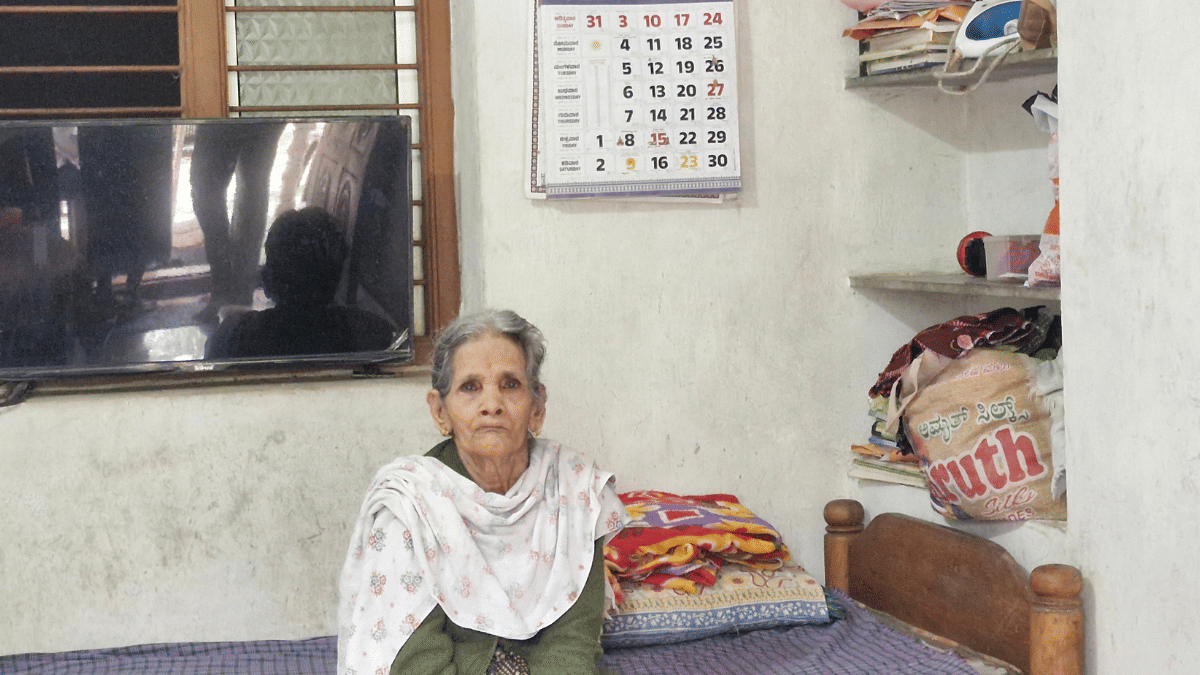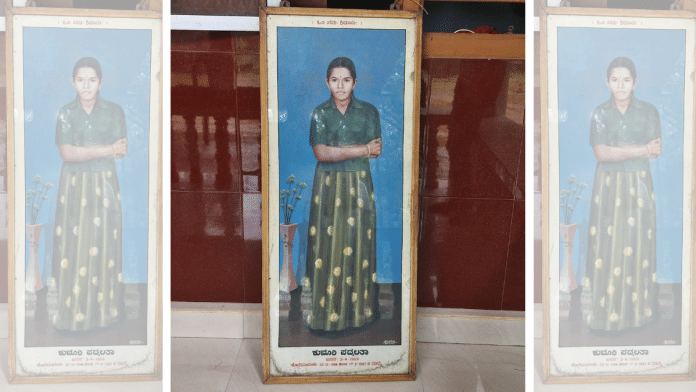Bengaluru: The family of Padmalatha, a teenager who was kidnapped and murdered in Dharmasthala, has approached the Special Investigation Team (SIT) to reopen the case as it remains unsolved for the last 38 years.
Padmalatha’s sister Indrawathi made a written plea before the SIT probing allegations of mass burials in Dharmasthala, to reopen the case. She told the SIT to exhume her sister’s remains which would provide vital evidence that the 17-year-old was sexually assaulted and murdered.
“Thirty-eight years ago, my sister Padmalatha, who was studying in the second PUC at S.D.M. College (Ujire). She went to college on 22 December, 1986 at Ujire, returned to Dharmasthala and went missing in the evening. Her decomposed body was found on the side of a stream on 17 February 1987,” according to her complaint.
Padmalatha was 17 at the time of her disappearance.
Her family told ThePrint that their father, Devananda, was a Communist Party of India (Marxist) leader and had filed his nomination for the Dharmasthala mandal panchayat elections in 1986.
Taking objections to his filing the nomination that did not have the blessing of a rich and influential family in the region, he was pressured into withdrawing his papers.
“He was even told that if he took back his nomination, then they were willing to let go of the daughter…they even offered money…but for our father, his principles were more important and not money. He contested and lost by a slender margin,” Indrawathi, the 60-year-old sister of Padmalatha, told ThePrint.
The latest complaint adds to the growing list of charges against a powerful and influential family in the region. Some of these include cases of Vedavalli (1979), Padmavathi (1986), Ananya Bhat (2003), the double murder of Narayana Sapale and his sister, Yamuna, in 2012 or Soujanya’s.
In early July, a former sanitation worker at Dharmasthala Temple alleged that he was coerced into burying ‘hundreds’ of bodies, mostly of women, between 1995 and 2014. Several of them bore signs of sexual assault and torture, he said.
The sanitation worker had at the time identified 13 sites where he had buried bodies and excavation was carried out at all these places. So far, the SIT has unearthed one human skeletal remains from site number 6. It also retrieved one human skull and 81 bones from near site number 11 but this was not during excavation but found overground, according to the police.
On July 4, the Dakshina Kannada police lodged an FIR based on the former sanitation worker’s statement in which he said that he was coerced into burying or disposing of dead by people “connected to the Dharmasthala temple administration and other staff members”.
Also Read: Dharmasthala a fortress on edge amid mass burial probe—clashes, lathi-charge, 4 FIRs
‘Not sure if we will get justice’
When Padmalatha went missing, her father and other party workers tried to lodge a complaint with the police. At the time, the police allegedly told them that the youngster must have ‘eloped’. Inquiries at her college yielded no response.
Later, one relative said that she saw Padmalatha getting down at Dharmasthala bus stand and then getting into the car of the college principal and another member of the influential family. That was the last they ever saw her.

When the family tried to put the name of the principal and the member of the influential family in the complaint, the police refused to file it and instead put it down as ‘unknown persons’, Indrawathi said.
At the time of her disappearance, then state minister Rachaiah had visited their home, about 2 km from Dharmasthala temple. The case was handed over to the COD (corps of detectives) and even discussed in the state assembly, the sister said.
“One man named Vasant, who was a jeep conductor, was arrested. They (police and associates of the powerful family) made up stories that he was friends with my sister and then tried to frame him. But later let him go,” Padmavathi’s other sister Achalavathi told ThePrint earlier.
The father and his party workers travelled everyday to the Belthangady police station for nearly two months to get some information about Padmalatha but in vain.
“After 56 days, some fisherfolk found her body beside the stream about a 1 km from our home. Her body was decaying and she was identified by the wrist watch and her clothes,” Achalavathi said.
Several women were found in similar circumstances over the decades but there have rarely been any arrests and most of these cases remain unsolved, according to the family members of victims, activists and townsfolk.
Indrawathi said that her sister and many like her deserve justice. “We need justice. Not just for my sister but all those murders that are unsolved. Although, we are not hopeful of getting it,” she told ThePrint earlier.
(Edited by Tony Rai)
Also Read: Dharmasthala: Judge who passed gag order recuses himself as defendant points to conflict of interest






